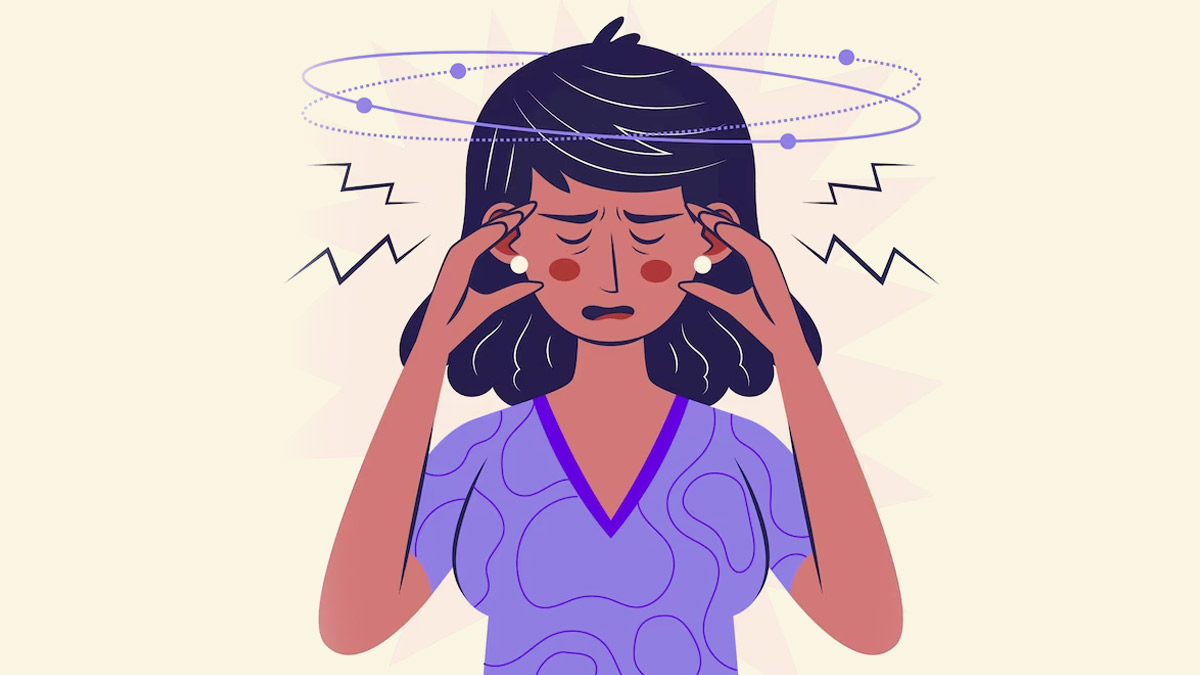
Vertigo, characterised by a spinning sensation or a feeling of dizziness, can significantly impact daily life. Whether it's a temporary episode or a chronic condition, here are some important things to keep in mind when dealing with vertigo:
Table of Content:-
"Vertigo can have a significant impact on a person's daily life, preventing them from living to the fullest," noted Dr Jejoe Karankumar, Medical Director of Abbott India.
Consult a Doctor
If you experience vertigo, especially if it's sudden or severe, it's crucial to consult a healthcare professional. They can help determine the underlying cause and recommend appropriate treatment.
"Vertigo affects one out of every ten people worldwide, but there are still diagnostic challenges that can make the treatment process lengthy and difficult. He noted that, despite its prevalence, both patients and healthcare professionals are unaware of the ailment. However, once a person has been accurately diagnosed, the condition is treatable," said Dr Jejoe.
Differentiate Between Vertigo Types
Vertigo can be peripheral (related to the inner ear) or central (related to the central nervous system). Understanding the type of vertigo can guide diagnosis and treatment.
Stay Hydrated
Dehydration can contribute to dizziness. Ensure you are adequately hydrated, especially in hot weather or if you're engaging in physical activity.

Also read: 6 Useful Home Remedies To Treat Vertigo And Tips To Prevent These Episodes
Avoid Triggers
Identify and avoid triggers that worsen your vertigo. This may include certain head movements, bright lights, or specific foods.
Modify Your Diet
Some individuals find relief by making dietary changes. Consider reducing salt intake, avoiding caffeine and alcohol, and maintaining stable blood sugar levels.
Practice Gentle Exercises
Certain exercises, like those aimed at improving balance and coordination, may be beneficial. However, always consult with a doctor or a physical therapist before starting any exercise regimen.
Manage Stress
Stress and anxiety can exacerbate vertigo symptoms. Practice stress management techniques such as deep breathing, meditation, or yoga to promote relaxation.

Medication Management
If prescribed medication for vertigo, take it as directed by your healthcare provider. Do not self-prescribe or adjust the dosage without consulting them.
Safety Measures
Be cautious when engaging in activities that require balance, such as driving or operating machinery. Consider using handrails or having a stable support when walking in unfamiliar or potentially precarious environments.
Sleep Well
Ensure you get an adequate amount of sleep each night. Fatigue can contribute to dizziness and worsen vertigo symptoms.
Regular Check-ups
Schedule regular check-ups with your healthcare provider to monitor your condition and make adjustments to your treatment plan if necessary.
Also read: Do You Often Feel Dizzy? This Could Be A Major Symptom Of Vertigo, Know Types, Myths
Consider Physical Therapy
Physical therapy may be beneficial, especially for certain types of vertigo. A physical therapist can guide you through exercises aimed at improving balance and reducing symptoms.
Stay Informed
Educate yourself about your individual type of vertigo and associated triggers. Individual experiences with vertigo can vary, so what works for one person may not work for another. It is critical to collaborate closely with healthcare providers to determine the underlying reason and develop a management plan that is tailored to your specific needs. If you have severe or abrupt vertigo along with any worrying symptoms, get emergency medical treatment.
Also watch this video
Read Next
Suhani Bhatnagar, Actress Who Played Young Babita Phogat In ‘Dangal,’ Dies At 19 In AIIMS, Delhi
How we keep this article up to date:
We work with experts and keep a close eye on the latest in health and wellness. Whenever there is a new research or helpful information, we update our articles with accurate and useful advice.
Current Version